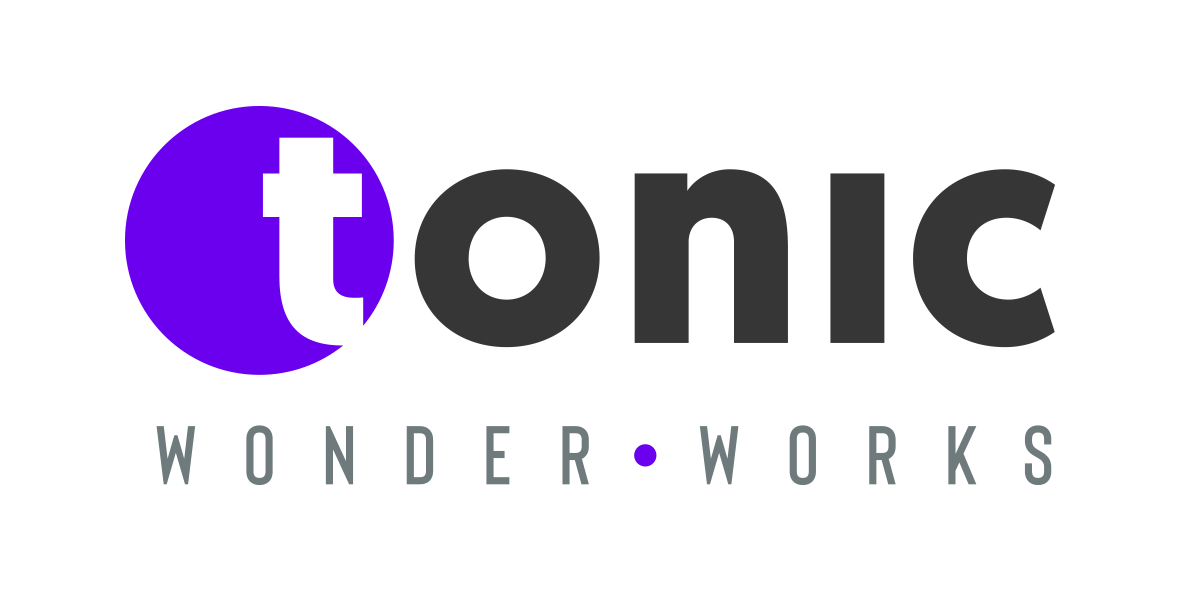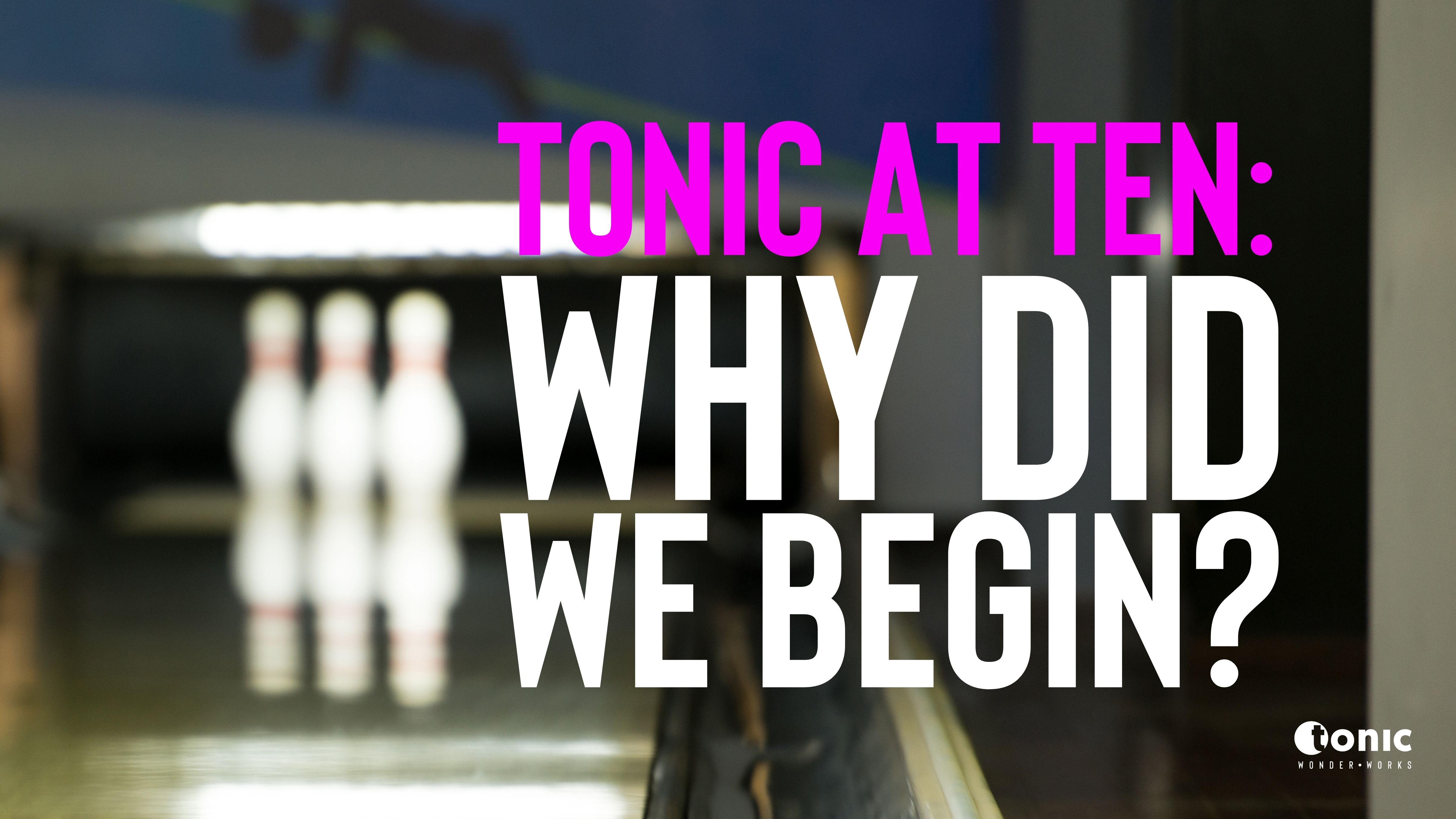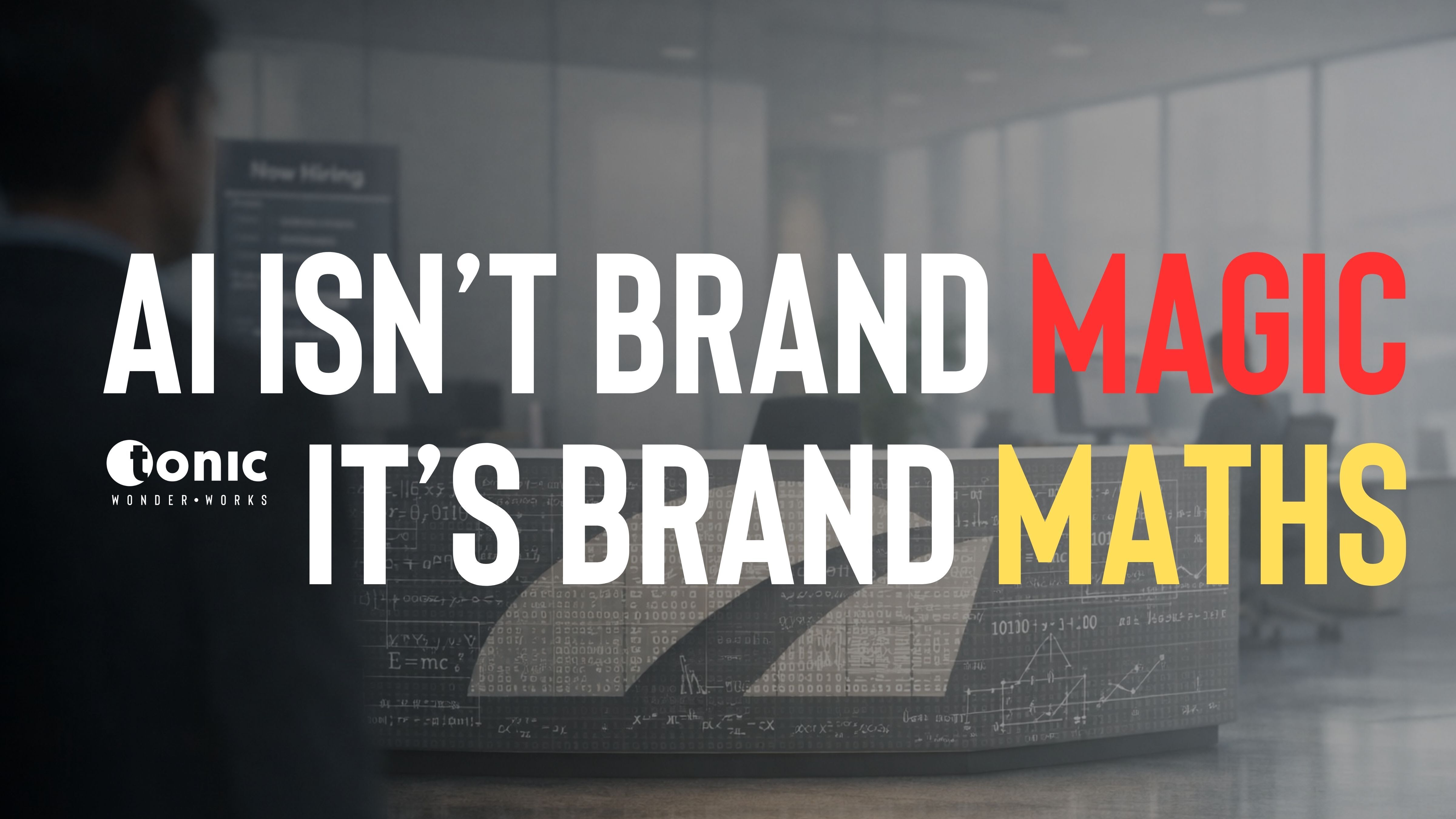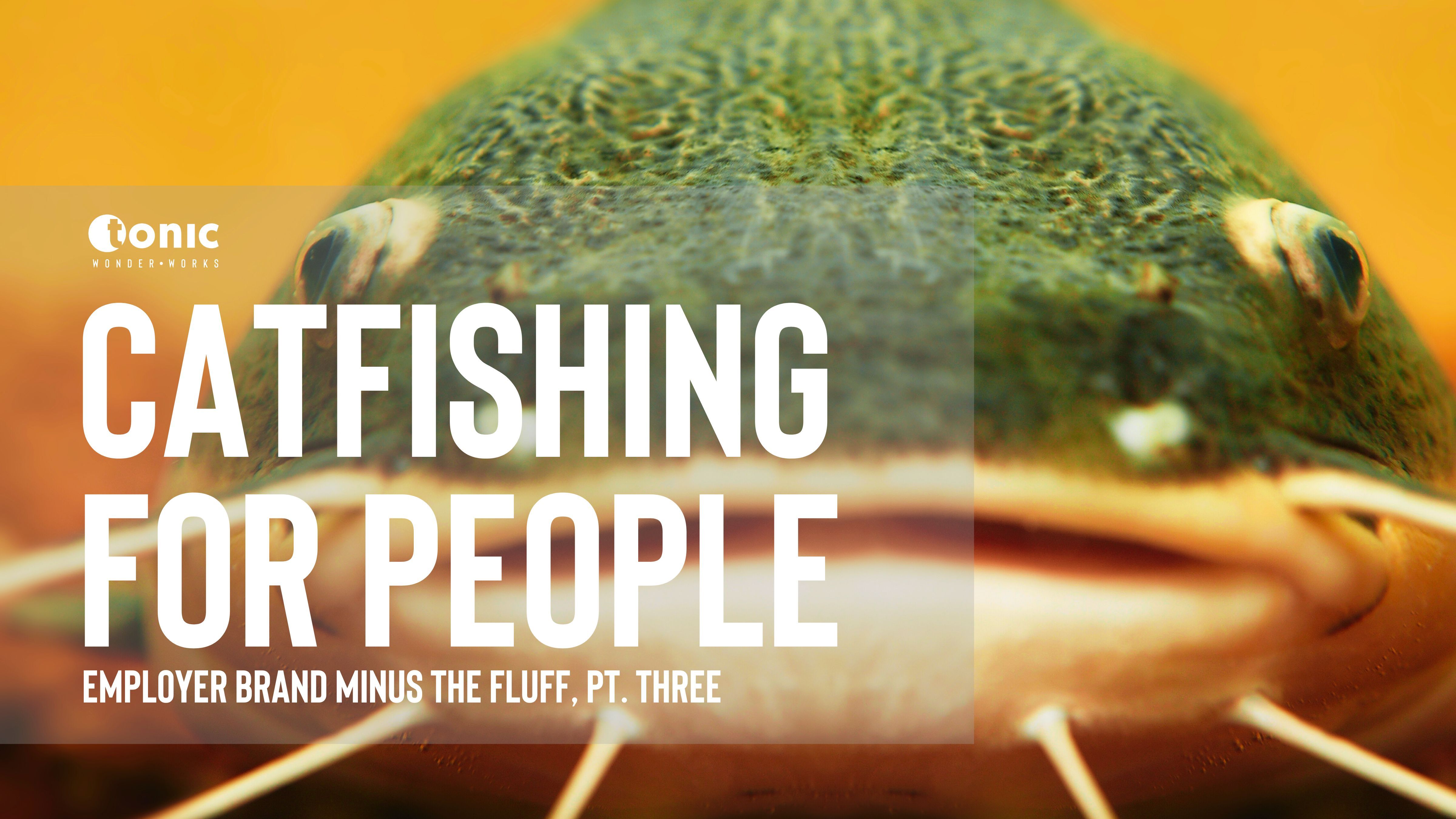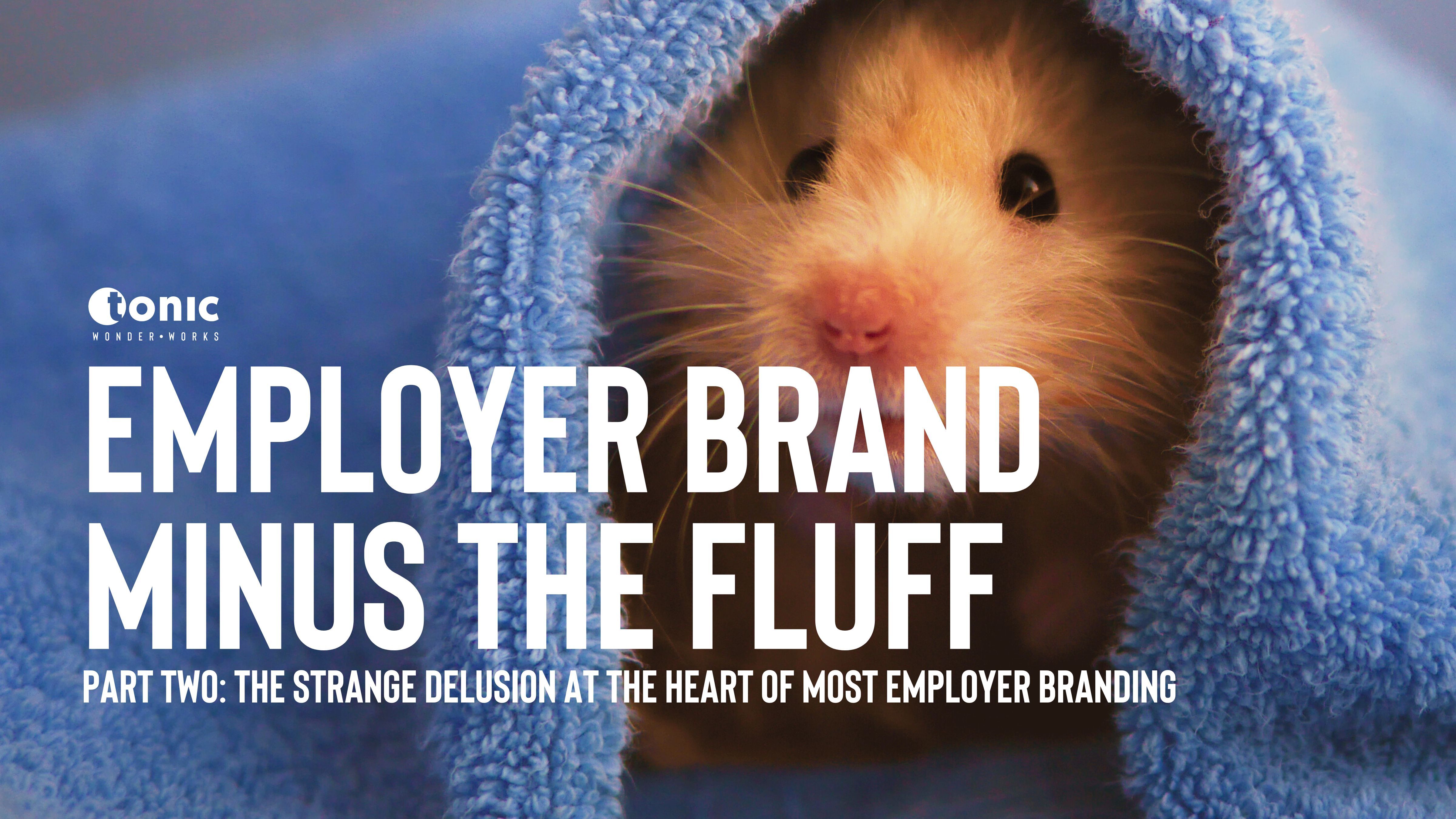In June 2012, Mark & I were starting Tonic. As we head towards our tenth birthday on the 4th of July this year, we've gone a little misty-eyed over some old blog posts.
I was interested to see how much of what we'd hoped for at the start still rang true. Whether our thinking had dated. Some thoughts have (the importance of Google+ anyone??), but some really haven't.
So, we'll do a retrospective. I've chosen ten that I still think are interesting which we'll share in June - there's a core to who we were and who we are as a team that's still very true. See what you think. The first one - why on earth are we doing this?!?
One month to go (May 2012)
Where do you begin your first ever blog? And, how and why do you begin your first business? Two big questions that we’ve had to answer in the last few months in preparing to launch Tonic – our new business that works with employers to build brand engagement with their people – past, present or future.
Firstly the why? Why move away from the safety net of big, stable businesses at a time when economically it might make more sense to hunker down and look for safe harbour in what looks likely to be a repeat of the financial storm of the credit crunch?
The simple answer is that in a changing world it’s those businesses that are more agile, more responsive to client need and more reflective of the communications environment of today (rather than being built on traditional models), that will succeed. There’s a better, more effective way to work, and no time like now to really impact on the way that employers interact with their people. A better place to be.
Simply doing more of the same push based employer marketing that typified marketing in the 20th century no longer benefits employers or the way that their people feel about the opportunities they offer – and neither does it reflect the way that decisions are made in a world that’s more social, more open to sharing experiences and therefore richer in readily available information.
Think about how you purchase goods or services now and how that compares to how you may have made the same decision between the available alternatives a few years ago. Even relatively small decisions about buying an album or a app for your phone for example might now mean looking at independent reviews from previous buyers or users rather than relying on what the seller wants you to think. Larger purchases might require even more research – how do you decide on which holiday, house or car is the right one for you?
Of course the career that you choose is perhaps the biggest buying decision you can make. After all it’ll largely determine the house you live in, the car you buy and the holidays you can go on. So how do you make a decision about which employer is likely to offer you the best career opportunities – and how would you make that decision now in comparison to a decade ago?
Tweets, blogs, and reviews on sites like Glassdoor or Roll on Friday are all potential sources of information that will help make informed career decisions – as are careers sites and advisors. Of course it would be plain blinkered to assume that company websites and corporate releases no longer play a part, but it’s not just that of course. It’s equally true that the experience you have of the products your potential new employer makes or the services they deliver will affect your decision to join that business rather than stay where you are – or to consider the alternatives.
So, we live in a content convergent world; there’s more information that’s more intertwined and more readily available about employers, what they do – and whether they are any good at it. Unfortunately the hard truth is that the majority of this content does not sit within the control of the business that’s under discussion. Some people will say nice things about you, some people won’t. So, how can we hope to influence the decisions of the people that we need to hire or retain?
The first step seems logically to accept this new scenario and the fact that you are no longer fully in control of how you’re perceived as a business and therefore as an employer. But having done so, there is an opportunity to build better relationships with the people who consume your brand identity – by treating them as rational consumers of the product that you offer, which is presumably a great career, with great opportunities to fulfil personal aspiration and development potential.
And that’s where Tonic will work. We join up brand conversations to help employers talk to, engage and excite the people they need. Identifying what’s special about your ‘people product’ and then using your uniqueness to persuade your community to buy you and your product by taking into account your whole story; people, product and business performance.
We think that’s exciting. That’s why we’re going into business. And I guess that’s how you begin your first blog.
